 |
 |
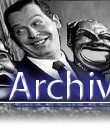 |
 |
 |
 |
 |
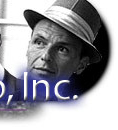 |
Click on the picture of your favorite celebrity to view more information. | |
 |
|||||||||
|
A MATCHLESS LIBRARY TELEVISION ARCHIVE |
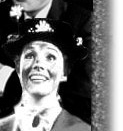 |
|
 |
|
 |
|
 |
|
 |
|
 |
|
 |
|
 |
|
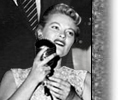 |
|
 |
|
 |
|
 |
|
 |
|
 |
|
 |
|
 |
|
 |
|
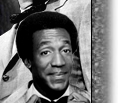 |
|
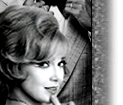 |
|
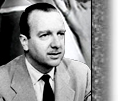 |
|
 |
|
 |
|
 |
|
 |
|
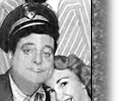 |
|
 |
|
 |
|
 |
|
 |
|
 |
|
 |
|
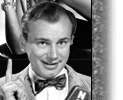 |
|
 |
|
 |
|
 |
|
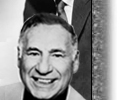 |
|
 |
|
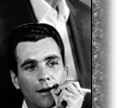 |
|
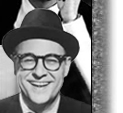 |
|
 |
|
 |
|
 |
|
 |
|
 |
|
 |
|
 |
|
 |
|
 |
|
 |
|
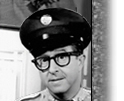 |
|
 |
|
 |
|
 |
|
 |
|
 |
|
 |
|
 |
|
 |
|
 |
|
 |
|
 |
|
 |
|
 |
|
 |
|
 |
|
 |
|
 |
|
 |
|
 |
|
 |
|
 |
|
 |
|
 |
|
 |
|
 |
|
 |
|
 |
|
 |
|
 |
|
 |
|
 |
|
 |
|
 |
|
 |
|
 |
|
 |
|
 |
|
 |
|
 |
|
 |
|
 |
|
 |
|
 |
|
 |
|
 |
|
 |
|
 |
|
 |
|
 |
|
 |
|
 |
|
 |
|
 |
|
 |
|
 |
|
 |
|
 |
|
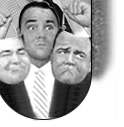 |
|
| Tributes | Talk | Events | News | Variety |
| Documentary | Music | Comedy | Juvenile | Awards |
| Biography | Sports | Productions | Others | Quiz |
| Specials |
|
19145 Results found in Category All Pages: 13 14 15 16 17 18 19 20 21 22 23 24 25 26 27 28 29 30 31 32 33 34 35 36 37 [38] 39 40 41 42 43 44 45 46 47 48 49 50 51 52 53 54 55 56 57 58 59 60 61 62 63 |
|
#7342:
PERRY COMO'S KRAFT MUSIC HALL
1961-02-08, NBC, 00 min. Andre Previn , Sammy Cahn , Perry Como , Eydie Gorme , Joey Heatherton , Renee Taylor September 12, 1955-June 12, 1963. In the fall of 1955 Perry Como returned to NBC where he hosted a weekly hour show. From 1955 to 1959 it was seen Saturday evenings and was titled "The Perry Como Show." From 1959 to 1963 it was seen Wednesday evenings and was titled "The Kraft Music Hall." Regulars included Frank Gallop and the Ray Charles Singers. After his final weekly June 12, 1963 broadcast Perry Como appeared in scores of specials, beginning October 3, 1963, airing on NBC, CBS & ABC, and concluding on December 6, 1986.
|
|
#7369:
"REMEMBER HOW GREAT."
1961-02-09, WNBC, 00 min. Jack Benny , Andy Williams , Connie Francis , Juliet Prowse , Harry James , McGuire Sisters Music and comedy special. Dupe Of Number 5417. |
|
#5417:
REMEMBER HOW GREAT
1961-02-09, WNBC, 52 min. Jack Benny , Andy Williams , Connie Francis , Juliet Prowse , Harry James , The McGuire Sisters Jack Benny hit radio in 1932. A lot of songs have come through the mill since then, and tonight Benny is host for a look-see at some of them. |
|
#4533:
SING ALONG WITH MITCH
1961-02-10, WNBC, 52 min. Mitch Miller , Leslie Uggams , Diana Trask , Sandy Stewart , Gloria Lambert January 27, 1961-April 21, 1961; September 28, 1961-September 21, 1964. Home viewers were able to participate in this hour-long musical series, as the lyrics to the songs were superimposed at the bottom of their screens; viewers were invited to "follow the bouncing ball" as it moved from one lyric to the next. Goateed composer-arranger Mitch Miller led the Sing-Along Gang, and on-stage aggregation of about two dozen. Among the featured vocalists were Leslie Uggams, Diana Trask, Barbara McNair, and Gloria Lambert. "Sing Along with Mitch" was introduced on "Ford Startime" in 1960 and had a limited run in the spring of 1961, alternating with "The Bell Telephone Hour," before going weekly in the fall of that year. Reruns were exhumed in the spring of 1966 to replace the faltering "Sammy Davis Jr. Show." Bill Hobin produced and directed the series. |
|
#10173:
"THE RAGTIME ERA"
1961-02-11, WOR, 30 min. Max Morath A 12-part series produced for the National Educational Television & Radio Center by KRMA-TV, Denver Colorado. The Ragtime Era with host Max Morath, who at the age of 32 is the ideal spokesman. He holds forth at an elegant pianoforte, singing and playing in a lively, authentic style. He' a close student of the period when America's popular music developed, and he sparks the narrative segments with anecdote and erudition that is as bright as the music. We hum ragtime tunes quite casually today, unaware, as Mr. Morath points out, that ragtime was once a national issue, and that the musicians’ union once passed a resolution censuring this type of music. Mr. Morath explains why ragtime was more than just another kind of tune. He tells of its origins and the men who first wrote it: Scott Joplin, the author of Maple Leaf Rag; John Stark, the first publisher of good ragtime music; James Scoot and others. He defines ragtime, syncopation, polyrhythm, and improvisation. He speaks of the player piano, the importance of the ragtime composer who wrote his music down, and the spread of ragtime across the nation by the end of the first decade of the twentieth century. Episodes in this series cover American pop music from the 1890's to 1920. Included are broadcasts focusing on the Blues, Ragtime, Musical Comedy, Tin Pan Alley, the Mauve Decade, Those Singin' Songs, Movie Music, the Song Pluggers, Tempos of the Time, and the songs made popular during World War 1. From radio to television to national fame as a performer, Max Morath became the recognized purveyor of music and popular culture of the ragtime era. That is the way most people remember Max Morath as “Mr. Ragtime.” In 1959, his epic 12-episode TV series The Ragtime Era, was the first modern educational documentary at KRMA-TV in Denver that both entertained and informed. It ushered in a field now produced by modern documentarians like Ken Burns at Florentine Films. Max wrote, hosted, and performed each 30-minute episode live in one-take and followed that series with other TV projects. He pioneered educational television with his producer Moss Hall and this series helped move the transition from National Educational Television (NET) to the Public Broadcasting System (PBS). Archival Television Audio, Inc. has preserved in its archive ten of the twelve part series. Missing is the sixth broadcast in the series, "The Yankee Doodle Boy," and the ninth broadcast in the series, "Emancipation of Women: New Music of the 20's" With “The Ragtime Era” National Educational Television brings viewers one of the most delightful, and at the same time informative series ever produced. But “The Ragtime Era” is more than a recreation of the music from 1890 to 1920. It is also a careful study of American social history between 1890 and 1920, a period which saw the beginning of the labor movement, modern technical achievements, feminism, the growing importance of Negroes and immigrants. It was a period of activity, unrest, gaiety and real distress. And, finally, “The Ragtime Era” provides the audience with some sound and at the same time uncomplicated, musical theory and analysis. To do all of this KRMA-TV, the Denver affiliate of NET, has drawn on the services of singer-pianist-musician Max Morath, who combines with his performances of ragtime classics a presentation of the pictures, stage sets, and other paraphernalia of “The Ragtime Era.” Episodes: Episode #1: The Mauve Decade Episode #2: Any Rags Today Episode #3: Lonesome Road Episode #4: Those Real Singin’ Songs Episode #5: More Music than Comedy Episode #6: The Yankee Doodle Boy Episode #7: Tin Pan Alley Episode #8: Tin Pan Alley Also Ran Episode #9: June, Moon, and Spoon (New Music of the '20s) Episode #10: The Tempos of Our Time Episode #11: Feet First Episode #12: The Great War In this opening episode presented on February 11th, 1961, pianist Max Morath presents music from the Mauve Decade, the 1890's. A retrospective trip back in time exploring music of the 1890s, also called "The Gay Nineties" or "Naughty Nineties." Note: Max Morath passed away on June 19th, 2023 at age 96. |
|
#13523:
BOB CONSIDINE AND THE NEWS
1961-02-12, , 7 min. Fidel Castro , John F. Kennedy , Patrice Lumumba , Arthur Goldberg , Adolf Eichmann Highlights: Russians launch a rocket to Venus, Patrice Lumumba is believed to be killed in the Congo, Castro blames Kennedy for six million unemployment rates in the US, Labor secretary Arthur Goldberg inspects unemployment areas, Eichmann lawyer gets Israeli rules on legal procedures. |
|
#13524:
CBS NEWS WITH PRESCOTT ROBINSON, THE
1961-02-13, CBS, 4 min. Prescott Robinson , Patrice Lumumba Highlights: Patrice Lumumba is assassinated in the Congo, Russian rocket on the way toward Venus, electrical equipment manufacturing scandal. |
|
#878:
A 1960'S RADIO BROADCAST ADDITION: A VALENTINE TO MY FAIR LADY
1961-02-14, WQXR, 50 min. Robert Russell Bennett , Alan Jay Lerner , Frederick Loewe , Samuel Liff , Franz Allers , Stanley Holloway , Rex Harrison , Julie Anderson , Philip J. Lang A salute to Alan Jay Lerner and Frederick Loewe on this Valentine's Day live presentation saluting the play "My Fair Lady." Hosts are Samuel Liff, stage production manager for the original Broadway production and conductor Franz Allers, who also performed during the Broadway "My Fair Lady" debut. Musical selections are played from the British and American productions. They include "I Could Have Danced All Night," sung by Julie Andrews, "The Rain in Spain," sung by Julie Andrews and Rex Harrison from the London Production, "With a Little Bit of Luck," sung by Stanley Holloway from the London Production, "The Ascop Gavotte," and "I've Grown Accustomed to her Face," sung by Rex Harrison. Anecdotes and recollections by Franz Allers and Samuel Liff reflect the many transitions experienced for this great classic as the company tours the world three years prior to the making of the motion picture in 1964. NOTE: The musical MY FAIR LADY had its pre-Broadway tryout at New Haven's Shubert Theatre. Then it played for four weeks at the Erlanger Theatre in Philadelphia, beginning on February 15, 1956. The musical premiered on Broadway March 15, 1956, at the Mark Hellinger Theatre in New York City. It transferred to the Broadhurst Theatre and then The Broadway Theatre, where it closed on September 29, 1962, after 2,717 performances, a record at the time. Moss Hart directed and Hanya Holm was choreographer. In addition to stars Rex Harrison, Julie Andrews and Stanley Holloway, the original cast included Robert Coote, Cathleen Nesbitt, John Michael King, and Reid Shelton. Harrison was replaced by Edward Mulhare in November 1957 and Sally Ann Howes replaced Andrews in February 1958. By the start of 1959, it was the biggest grossing Broadway show of all-time with a gross of $10 million. The Original Cast Recording, released on April 2, 1956, was the best-selling album in the United States in 1956. Original London production The West End production, in which Harrison, Andrews, Coote, and Holloway reprised their roles, opened on April 30, 1958, at the Theatre Royal, Drury Lane, where it ran for five and a half years (2,281 performances). Edwardian musical comedy star Zena Dare made her last appearance in the musical as Mrs. Higgins. Leonard Weir played Freddy. Harrison left the London cast in March 1959, followed by Andrews in August 1959 and Holloway in October 1959. MY FAIR LADY won six 1957 TONY awards, including Best Musical, and the Film version released in 1964 with Audrey Hepburn replacing Julie Andrews in the role of Eliza Doolittle won five Oscar awards including Best Actor for Rex Harrison and Best Picture. |
|
#7343:
PERRY COMO'S KRAFT MUSIC HALL
1961-02-15, NBC, 00 min. Perry Como September 12, 1955-June 12, 1963. In the fall of 1955 Perry Como returned to NBC where he hosted a weekly hour show. From 1955 to 1959 it was seen Saturday evenings and was titled "The Perry Como Show." From 1959 to 1963 it was seen Wednesday evenings and was titled "The Kraft Music Hall." Regulars included Frank Gallop and the Ray Charles Singers. After his final weekly June 12, 1963 broadcast Perry Como appeared in scores of specials, beginning October 3, 1963, airing on NBC, CBS & ABC, and concluding on December 6, 1986.
The 2-15-61 program features a short excerpt only.
|
|
#11123:
UNITED NATIONS MEETS ON CONGO INDEPENDENCE MOVEMENT
1961-02-15, , min. Unknown United Nations Security Council meets on the Congo crisis. Independence movement taking place across Africa. Independence movement also taking place in Belgian Congo later to become Zaire and later, The Republic of Congo. |
|
#7122:
THE FORD SHOW
1961-02-16, NBC, 00 min. Tennessee Ernie Ford , Karen Wessler , Irene Cummings Variety- NBC - 30 minutes, October 4th, 1956-June 29th, 1961.
Tennessee Ernie Ford was host, singer and comedian of this variety show. The musical portion of the program consisted mostly of Country and Western and Gospel music.
A special presentation of the opera "Carmen."
|
|
#1329:
BELL TELEPHONE HOUR: THE SOUNDS OF AMERICA, THE
1961-02-17, WNBC, 52 min. Donald Voorhees , Jacques d'Amboise , The Earl Twins , Gene Nelson January 12, 1959-April 26, 1968. This musical series ran semiregularly for almost ten seasons-sometimes weekly, sometimes biweekly, and sometimes as irregularly scheduled specials. All types of music were presented on the hour series; Donald Voorhees conducted the Bell Telephone Orchestra. |
|
#67:
JACKIE GLEASON SHOW, THE
1961-02-17, WCBS, 20 min. Jackie Gleason , Art Carney Guest Art Carney ad libs with Jackie Gleason, who also does a seven minute stand up comedy routine on the subject of "Bob Hope." For two months, Jackie conducted this informal talk show replacing the abortive quiz show "You're in the Picture," which aired only one time (Jan. 20, 1961). |
|
#10174:
RAGTIME ERA, THE: "ANY RAGS TODAY" (THE BIRTH OF THE BLUES)
1961-02-18, WOR, 28 min. Max Morath , Scott Joplin , John Stark , James Scoot February 11, 1961 - April 19, 1961
A 12-part series produced for the National Educational Television & Radio Center by KRMA-TV, Denver Colorado.
The Ragtime Era with host Max Morath, who at the age of 32 is the ideal spokesman. He holds forth at an elegant pianoforte, singing and playing in a lively, authentic style. He' a close student of the period when America's popular music developed, and he sparks the narrative segments with anecdote and erudition that is as bright as the music.
We hum ragtime tunes quite casually today, unaware, as Mr. Morath points out, that ragtime was once a national issue, and that the musicians’ union once passed a resolution censuring this type of music. Mr. Morath explains why ragtime was more than just another kind of tune. He tells of its origins and the men who first wrote it: Scott Joplin, the author of Maple Leaf Rag; John Stark, the first publisher of good ragtime music; James Scoot and others. He defines ragtime, syncopation, polyrhythm, and improvisation. He speaks of the player piano, the importance of the ragtime composer who wrote his music down, and the spread of ragtime across the nation by the end of the first decade of the twentieth century.
Episodes in this series cover American pop music from the 1890's to 1920. Included are broadcasts focusing on the Blues, Ragtime, Musical Comedy, Tin Pan Alley, the Mauve Decade, Those Singin' Songs, Movie Music, the Song Pluggers, Tempos of the Time, and the songs made popular during World War 1.
From radio to television to national fame as a performer, Max Morath became the recognized purveyor of music and popular culture of the ragtime era. That is the way most people remember Max Morath as “Mr. Ragtime.”
In 1959, his epic 12-episode TV series The Ragtime Era, was the first modern educational documentary at KRMA-TV in Denver that both entertained and informed. It ushered in a field now produced by modern documentarians like Ken Burns at Florentine Films. Max wrote, hosted, and performed each 30-minute episode live in one-take and followed that series with other TV projects.
He pioneered educational television with his producer Moss Hall and this series helped move the transition from National Educational Television (NET) to the Public Broadcasting System (PBS).
Archival Television Audio, Inc. has preserved in its archive ten of the twelve part series. Missing is the sixth broadcast in the series,"The Yankee Doodle Boy," and the ninth broadcast in the series, "Emancipation of Women: New Music of the 20's"
With “The Ragtime Era” National Educational Television brings viewers one of the most delightful, and at the same time informative series ever produced. But “The Ragtime Era” is more than a recreation of the music from 1890 to 1920. It is also a careful study of American social history between 1890 and 1920, a period which saw the beginning of the labor movement, modern technical achievements, feminism, the growing importance of Negroes and immigrants. It was a period of activity, unrest, gaiety and real distress. And, finally, “The Ragtime Era” provides the audience with some sound and at the same time uncomplicated, musical theory and analysis. To do all of this KRMA-TV, the Denver affiliate of NET, has drawn on the services of singer-pianist-musician Max Morath, who combines with his performances of ragtime classics a presentation of the pictures, stage sets, and other paraphernalia of “The Ragtime Era.”
Episodes:
Episode #1: The Mauve Decade
Episode #2: Any Rags Today
Episode #3: Lonesome Road
Episode #4: Those Real Singin’ Songs
Episode #5: More Music than Comedy
Episode #6: The Yankee Doodle Boy
Episode #7: Tin Pan Alley
Episode #8: Tin Pan Alley Also Ran
Episode #9: June, Moon, and Spoon (New Music of the '20s)
Episode #10: The Tempos of Our Time
Episode #11: Feet First
Episode #12: The Great War
|
|
#7100:
ED SULLIVAN SHOW
1961-02-19, WCBS, 00 min. Ed Sullivan , Jack Carter , Dan Rowan , Dick Martin , Lucille Ball , Paula Stewart , Wayne and Shuster , Leon Bib , Bill Black Combo , Justin Wilson There is a Western Saloon sketch with Sullivan playing "Dead Eye," from a clip of February 7th, 1961, when Sullivan guest-hosted on the Red Skelton Show. This Sullivan show was repeated by CBS on August 6th, 1961. |
|
#7161:
GREAT MUSIC FROM CHICAGO
1961-02-20, WGN, 00 min. Count Basie , Chicago Symphony Orchestra October 18th, 1959-1966,
A one hour syndicated taped color weekly broadcast, featuring the Chicago Symphony Orchestra. The series was awarded a Peabody. Superb music by a 71 piece orchestra in the sumptuous setting of a ballroom. Different guest conductors appear on a weekly basis and take the podium.
Guest: Count Basie
|
|
#68:
JACKIE GLEASON SHOW, THE
1961-02-24, WCBS, 23 min. Jackie Gleason , Gordon MacRae , Sheila MacRae Gordon MacRae and Sheila MacRae ad lib with Jackie Gleason. For two months, Jackie conducted this informal talk show replacing the abortive quiz show "You're in the Picture." |
|
#4534:
SING ALONG WITH MITCH
1961-02-24, WNBC, 52 min. Mitch Miller , Leslie Uggams , Diana Trask , Sandy Stewart , Gloria Lambert January 27, 1961-April 21, 1961; September 28, 1961-September 21, 1964. Home viewers were able to participate in this hour-long musical series, as the lyrics to the songs were superimposed at the bottom of their screens; viewers were invited to "follow the bouncing ball" as it moved from one lyric to the next. Goateed composer-arranger Mitch Miller led the Sing-Along Gang, and on-stage aggregation of about two dozen. Among the featured vocalists were Leslie Uggams, Diana Trask, Barbara McNair, and Gloria Lambert. "Sing Along with Mitch" was introduced on "Ford Startime" in 1960 and had a limited run in the spring of 1961, alternating with "The Bell Telephone Hour," before going weekly in the fall of that year. Reruns were exhumed in the spring of 1966 to replace the faltering "Sammy Davis Jr. Show." Bill Hobin produced and directed the series. |
|
#10175:
RAGTIME ERA, THE: "LONESOME ROAD" (THE BLUES)
1961-02-25, WOR, 28 min. Max Morath , Ernie Douglas , WC Handy February 11, 1961 - April 19, 1961
A 12-part series produced for the National Educational Television & Radio Center by KRMA-TV, Denver Colorado.
The Ragtime Era with host Max Morath, who at the age of 32 is the ideal spokesman. He holds forth at an elegant pianoforte, singing and playing in a lively, authentic style. He' a close student of the period when America's popular music developed, and he sparks the narrative segments with anecdote and erudition that is as bright as the music.
Mr. Morath’s subject for this program is the blues: their origin, their musical form, and the new rhythms involved. Combining musical analysis with some excellent performances by Ernie Douglas singing the blues, Mr. Morath presents a program of musical theory, history, and song. He talks about one of the fathers of the blues, WC Handy, and about the spread of the blues from Memphis to London, England. He gives a picture of music whose importance and popularity still continue, half a century later.
Episodes in this series cover American pop music from the 1890's to 1920. Included are broadcasts focusing on the Blues, Ragtime, Musical Comedy, Tin Pan Alley, the Mauve Decade, Those Singin' Songs, Movie Music, the Song Pluggers, Tempos of the Time, and the songs made popular during World War 1.
From radio to television to national fame as a performer, Max Morath became the recognized purveyor of music and popular culture of the ragtime era. That is the way most people remember Max Morath as “Mr. Ragtime.”
In 1959, his epic 12-episode TV series The Ragtime Era, was the first modern educational documentary at KRMA-TV in Denver that both entertained and informed. It ushered in a field now produced by modern documentarians like Ken Burns at Florentine Films. Max wrote, hosted, and performed each 30-minute episode live in one-take and followed that series with other TV projects.
He pioneered educational television with his producer Moss Hall and this series helped move the transition from National Educational Television (NET) to the Public Broadcasting System (PBS).
Archival Television Audio, Inc. has preserved in its archive ten of the twelve part series. Missing is the sixth broadcast in the series,"The Yankee Doodle Boy," and the ninth broadcast in the series, "Emancipation of Women: New Music of the 20's"
With “The Ragtime Era” National Educational Television brings viewers one of the most delightful, and at the same time informative series ever produced. But “The Ragtime Era” is more than a recreation of the music from 1890 to 1920. It is also a careful study of American social history between 1890 and 1920, a period which saw the beginning of the labor movement, modern technical achievements, feminism, the growing importance of Negroes and immigrants. It was a period of activity, unrest, gaiety and real distress. And, finally, “The Ragtime Era” provides the audience with some sound and at the same time uncomplicated, musical theory and analysis. To do all of this KRMA-TV, the Denver affiliate of NET, has drawn on the services of singer-pianist-musician Max Morath, who combines with his performances of ragtime classics a presentation of the pictures, stage sets, and other paraphernalia of “The Ragtime Era.”
Episodes:
Episode #1: The Mauve Decade
Episode #2: Any Rags Today
Episode #3: Lonesome Road
Episode #4: Those Real Singin’ Songs
Episode #5: More Music than Comedy
Episode #6: The Yankee Doodle Boy
Episode #7: Tin Pan Alley
Episode #8: Tin Pan Alley Also Ran
Episode #9: June, Moon, and Spoon
Episode #10: The Tempos of Our Time
Episode #11: Feet First
Episode #12: The Great War
|
|
#69:
25 YEARS OF LIFE MAGAZINE
1961-03-02, WNBC, 82 min. Mary Martin , John F. Kennedy , Bob Hope , Sid Caesar , Peggy Cass , The Ray Charles Singers , Fredric March A Life Magazine Anniversary Review is recalled in moments, both tragic and zany. Bob Hope hosts with guests Sid Caesar, Peggy Cass, Mary Martin, The Ray Charles Singers and Fredric March. President John F. Kennedy adds his own special salute. |
|
#70:
JACKIE GLEASON SHOW, THE
1961-03-03, WCBS, 26 min. Jackie Gleason , Jayne Mansfield Guest Jayne Mansfield ad libs with Jackie Gleason. For two months, Jackie conducted this informal talk show replacing the abortive quiz show "You're in the Picture," which aired only one time. Gleason talks about reaching his 45th birthday with observations, past, present and future. |
|
#6985:
BELL TELEPHONE HOUR
1961-03-03, WNBC, 00 min. Burl Ives , Donald Voorhees , Stanley Holloway , Renata Tebaldi , Gracie Fields January 12, 1959-April 26, 1968. This musical series ran semi regularly for almost ten seasons-sometimes weekly, sometimes biweekly, and sometimes as irregularly scheduled specials. All types of music were presented on the hour series; Donald Voorhees conducted the Bell Telephone Orchestra.
Host:Burl Ives.Salute To London
|
|
#7250L:
LAWRENCE WELK SHOW, THE
1961-03-04, WABC, ?? min. Lawrence Welk July 2, 1955-September 4, 1971; 1971-1982 (Syndicated). "The Lawrence Welk Show" presented middle-of-the-road music for almost three decades. Numbers were performed by the members of Welk's television family. That large group included the Lennon Sisters (Dianne, Peggy, Kathy and Janet), Alice Lon, Norma Zimmer, Tanya Falan, Arthur Duncan, Joe Feeney, Guy Hovis, Jim Roberts, Ralna English, Larry Hooper, Jerry Burke and former Mouseketeer Bobby Burgess. |
|
#10176:
RAGTIME ERA, THE: "THE REAL SINGIN' SONGS"
1961-03-04, WOR, 28 min. Max Morath , Barbershop Quartet February 11, 1961 - April 19, 1961
A 12-part series produced for the National Educational Television & Radio Center by KRMA-TV, Denver Colorado.
The Ragtime Era with host Max Morath, who at the age of 32 is the ideal spokesman. He holds forth at an elegant pianoforte, singing and playing in a lively, authentic style. He' a close student of the period when America's popular music developed, and he sparks the narrative segments with anecdote and erudition that is as bright as the music.
Some songs stay alive despite any changes in taste or style, and a large number of the songs we’re singing now were written in the Ragtime Era. Mr. Morath sings many of them and describes why they have remained so popular for so long. The fact that they were written by musicians who were not professional song writers, the use of a simple pattern of notes, and the rhythms which made them easy to sing made these songs memorable. This program features not only Mr. Morath, but also a barbershop quartet.
Episodes in this series cover American pop music from the 1890's to 1920. Included are broadcasts focusing on the Blues, Ragtime, Musical Comedy, Tin Pan Alley, the Mauve Decade, Those Singin' Songs, Movie Music, the Song Pluggers, Tempos of the Time, and the songs made popular during World War 1.
From radio to television to national fame as a performer, Max Morath became the recognized purveyor of music and popular culture of the ragtime era. That is the way most people remember Max Morath as “Mr. Ragtime.”
In 1959, his epic 12-episode TV series The Ragtime Era, was the first modern educational documentary at KRMA-TV in Denver that both entertained and informed. It ushered in a field now produced by modern documentarians like Ken Burns at Florentine Films. Max wrote, hosted, and performed each 30-minute episode live in one-take and followed that series with other TV projects.
He pioneered educational television with his producer Moss Hall and this series helped move the transition from National Educational Television (NET) to the Public Broadcasting System (PBS).
Archival Television Audio, Inc. has preserved in its archive ten of the twelve part series. Missing is the sixth broadcast in the series,"The Yankee Doodle Boy," and the ninth broadcast in the series, "Emancipation of Women: New Music of the 20's"
With “The Ragtime Era” National Educational Television brings viewers one of the most delightful, and at the same time informative series ever produced. But “The Ragtime Era” is more than a recreation of the music from 1890 to 1920. It is also a careful study of American social history between 1890 and 1920, a period which saw the beginning of the labor movement, modern technical achievements, feminism, the growing importance of Negroes and immigrants. It was a period of activity, unrest, gaiety and real distress. And, finally, “The Ragtime Era” provides the audience with some sound and at the same time uncomplicated, musical theory and analysis. To do all of this KRMA-TV, the Denver affiliate of NET, has drawn on the services of singer-pianist-musician Max Morath, who combines with his performances of ragtime classics a presentation of the pictures, stage sets, and other paraphernalia of “The Ragtime Era.”
Episodes:
Episode #1: The Mauve Decade
Episode #2: Any Rags Today
Episode #3: Lonesome Road
Episode #4: Those Real Singin’ Songs
Episode #5: More Music than Comedy
Episode #6: The Yankee Doodle Boy
Episode #7: Tin Pan Alley
Episode #8: Tin Pan Alley Also Ran
Episode #9: June, Moon, and Spoon (New Music of the '20s)
Episode #10: The Tempos of Our Time
Episode #11: Feet First
Episode #12: The Great War
|
|
#1325:
BELL TELEPHONE HOUR: A GALAXY OF MUSIC, THE
1961-03-04, WNBC, 52 min. Burl Ives , Donald Voorhees , Renata Tebaldi , Fields and Holloway , The Roberto Iglesias Ballet , Los Chavales de Espana January 12, 1959-April 26, 1968. This musical series ran semiregularly for almost ten seasons-sometimes weekly, sometimes biweekly, and sometimes as irregularly scheduled specials. All types of music were presented on the hour series; Donald Voorhees conducted the Bell Telephone Orchestra. |
|
#71:
FIGHT OF THE WEEK, THE
1961-03-04, WABC, 34 min. Gene Fullmer , Sugar Ray Robinson , Don Dunphy , Marv Jensen , Dick Porter The fourth match between Middleweight Champion Gene Fullmer and Challenger Sugar Ray Robinson is called by Don Dunphy. Winner Gene Fullmer is interviewed with Fullmer's manager Marv Jensen. Ring announcer is Dick Porter. Rounds 1, 3, 8, 10, 13, & 15 are described, blow-by-blow, by Don Dunphy. |
|
#7162:
GREAT MUSIC FROM CHICAGO
1961-03-06, WGN, 00 min. Andre Kostelanetz , Chicago Symphony Orchestra October 18th, 1959-1966,
A one hour syndicated taped color weekly broadcast, featuring the Chicago Symphony Orchestra. The series was awarded a Peabody. Superb music by a 71 piece orchestra in the sumptuous setting of a ballroom. Different guest conductors appear on a weekly basis and take the podium.
Andre Kostelanetz Conductor
|
|
#72:
JACKIE GLEASON SHOW, THE
1961-03-10, WCBS, 16 min. Ingemar Johansson , Jackie Gleason , Floyd Patterson Guests Heavyweight boxing Champion Floyd Patterson and former champ Ingemar Johansson meet with Jackie Gleason. For two months, Jackie conducted this informal talk show replacing the abortive quiz show "You're in the Picture," which aired only one time. |
|
#4535:
SING ALONG WITH MITCH
1961-03-10, WNBC, 52 min. Mitch Miller , Leslie Uggams , Diana Trask , Sandy Stewart , Gloria Lambert January 27, 1961-April 21, 1961; September 28, 1961-September 21, 1964. Home viewers were able to participate in this hour-long musical series, as the lyrics to the songs were superimposed at the bottom of their screens; viewers were invited to "follow the bouncing ball" as it moved from one lyric to the next. Goateed composer-arranger Mitch Miller led the Sing-Along Gang, and on-stage aggregation of about two dozen. Among the featured vocalists were Leslie Uggams, Diana Trask, Barbara McNair, and Gloria Lambert. "Sing Along with Mitch" was introduced on "Ford Startime" in 1960 and had a limited run in the spring of 1961, alternating with "The Bell Telephone Hour," before going weekly in the fall of that year. Reruns were exhumed in the spring of 1966 to replace the faltering "Sammy Davis Jr. Show." Bill Hobin produced and directed the series. |
|
#7254:
LAWRENCE WELK SHOW, THE
1961-03-11, WABC, ?? min. Lawrence Welk , Eddie Howard July 2, 1955-September 4, 1971; 1971-1982 (Syndicated). "The Lawrence Welk Show" presented middle-of-the-road music for almost three decades. Numbers were performed by the members of Welk's television family. That large group included the Lennon Sisters (Dianne, Peggy, Kathy and Janet), Alice Lon, Norma Zimmer, Tanya Falan, Arthur Duncan, Joe Feeney, Guy Hovis, Jim Roberts, Ralna English, Larry Hooper, Jerry Burke and former Mouseketeer Bobby Burgess. |
|
#10177:
RAGTIME ERA, THE: "MORE MUSIC THAN COMEDY"
1961-03-11, WOR, 28 min. Max Morath , George Gershwin , Cole Porter , ` Irving Berlin February 11, 1961 - April 19, 1961
A 12-part series produced for the National Educational Television & Radio Center by KRMA-TV, Denver Colorado.
The Ragtime Era with host Max Morath, who at the age of 32 is the ideal spokesman. He holds forth at an elegant pianoforte, singing and playing in a lively, authentic style. He' a close student of the period when America's popular music developed, and he sparks the narrative segments with anecdote and erudition that is as bright as the music.
Musical comedies broke away from the Viennese operetta in the Ragtime Era, and Mr. Morath spends this program telling about the ancestors of Naughty Marietta, and, later, Oklahoma! and Carousel. Jerome Kern, Irving Berlin, George Gershwin and Cole Porter gained their starts from the impetus of the musical comedies, vaudeville shows and extravaganzas of the Ragtime Era.
Episodes in this series cover American pop music from the 1890's to 1920. Included are broadcasts focusing on the Blues, Ragtime, Musical Comedy, Tin Pan Alley, the Mauve Decade, Those Singin' Songs, Movie Music, the Song Pluggers, Tempos of the Time, and the songs made popular during World War 1.
From radio to television to national fame as a performer, Max Morath became the recognized purveyor of music and popular culture of the ragtime era. That is the way most people remember Max Morath as “Mr. Ragtime.”
In 1959, his epic 12-episode TV series The Ragtime Era, was the first modern educational documentary at KRMA-TV in Denver that both entertained and informed. It ushered in a field now produced by modern documentarians like Ken Burns at Florentine Films. Max wrote, hosted, and performed each 30-minute episode live in one-take and followed that series with other TV projects.
He pioneered educational television with his producer Moss Hall and this series helped move the transition from National Educational Television (NET) to the Public Broadcasting System (PBS).
Archival Television Audio, Inc. has preserved in its archive ten of the twelve part series. Missing is the sixth broadcast in the series,"The Yankee Doodle Boy," and the ninth broadcast in the series, "Emancipation of Women: New Music of the 20's"
With “The Ragtime Era” National Educational Television brings viewers one of the most delightful, and at the same time informative series ever produced. But “The Ragtime Era” is more than a recreation of the music from 1890 to 1920. It is also a careful study of American social history between 1890 and 1920, a period which saw the beginning of the labor movement, modern technical achievements, feminism, the growing importance of Negroes and immigrants. It was a period of activity, unrest, gaiety and real distress. And, finally, “The Ragtime Era” provides the audience with some sound and at the same time uncomplicated, musical theory and analysis. To do all of this KRMA-TV, the Denver affiliate of NET, has drawn on the services of singer-pianist-musician Max Morath, who combines with his performances of ragtime classics a presentation of the pictures, stage sets, and other paraphernalia of “The Ragtime Era.”
Episodes:
Episode #1: The Mauve Decade
Episode #2: Any Rags Today
Episode #3: Lonesome Road
Episode #4: Those Real Singin’ Songs
Episode #5: More Music than Comedy
Episode #6: The Yankee Doodle Boy
Episode #7: Tin Pan Alley
Episode #8: Tin Pan Alley Also Ran
Episode #9: June, Moon, and Spoon (New Music of the '20s)
Episode #10: The Tempos of Our Time
Episode #11: Feet First
Episode #12: The Great War
|
|
#5906:
CHEVY SHOW: "O'HALLORAN'S LUCK"
1961-03-12, WNBC, 54 min. Art Carney , Barbara Cook , John McGovern , Dan Keyes , Pat Harrington Sr. , Warde Donovan , Barbara Robbins , Dick O Neill , George Turner , Grania O Malley , Al Henderson , Henri Rene , David Saxon , Diane Lampert , Peter Farrow December 8, 1957-June 18, 1961. Programs not hosted by Dinah Shore (every 4th week during the season of 1957-58 and 1958-59, more often thereafter until June 1961) were known as "The Chevy Show." Presented on "THE CHEVY SHOW." An original musical fantasy, based on a story by Stephen Vincent Benet, about an Irishman who sets off for America. The leprechaun Rory and his friends are portrayed by the Baird Marionettes. Book by A. J. Russell from a story by Stephen Vincent Benet. Music by David Saxon. Lyrics by Diane Lampert and Peter Farrow. Songs include, "Every Little Boy," "Watcha Do on Sunday,?" "Hoo Boo,""Shenanigans," "Watersprite Ballet," and Goin' Green." NOTE: A "LOST" television broadcast only survives on B/W 16mm original negative stock and separate 16mm neg. optical track...not processed since its original broadcast almost sixty years ago. Unlike many other musical productions for television during the 1950's and 1960's NO LP was conceived or created for this presentation. The ATA original reel to reel pristine direct line audio recording of O'HALLORAN'S LUCK was completed at the time of its one time airing, in color, on NBC TV. |
|
#73:
A 1960'S RADIO BROADCAST ADDITION:THE FLOYD PATTERSON VS INGEMAR JOHANSSON HEAVYWEIGHT CHAMPIONSHIP FIGHT
1961-03-13, WABC, 63 min. Ingemar Johansson , Floyd Patterson , Les Keiter , Howard Cosell , Rocky Marciano , Joe Louis , Arthur Mercante , Jack McCarthy , Mickey Allen , Cus Damato , Billy Regan Howard Cosell and Les Keiter are on hand to bring the third boxing match between Ingemar Johansson and Floyd Patterson from Miami Beach, Florida. Commentary from Rocky Marciano, Joe Louis, and Referee Arthur Mercante. At ringside, announcer Jack McCarthy is heard. Mickey Allen sings the National Anthem. Memorable first round with Patterson being knocked down twice and Johansson sent to the canvas once. Post-fight interviews with champ Floyd Patterson, manager Cus D'Amato, referee Billy Regan and Joe Louis. Hugh O'Brien is interviewed at ringside by Howard Cosell. |
|
#10931D:
TONIGHT SHOW STARRING JACK PAAR, THE
1961-03-13, NBC, 17 min. Jack Paar , Hugh Downs , Ed Sullivan July 29, 1957- March 30,1962. For four years and eight months Jack Paar reigned supreme as host of the Tonight Show with a crew of regulars, but only two stayed with him for the entire run; announcer Hugh Downs and band leader Jose Melies, a former army buddy. Familiar faces who appeared many times with Jack included Dody Goodman, Betty Johnson, Elsa Maxwell, Alexander King, Genevieve, Jack Douglas; and wife Reiko, Zsa Zsa Gabor, Hans Conried, Peggy Cass, Cliff (Charley Weaver) Arquette, and Johnathan Winters. Hugh Downs substituted for Jack Paar 79 times, more than any other substitute host there were 20 different performers over the period of the series run. Joey Bishop substituted for Paar 31 times. Arlene Francis, 30 times, Jonathan Winters, 26 times, Orson Bean, 21 times and Johnny Carson 15 times. Altogether there were 243 broadcasts that had substitute hosts filling in for Paar during Jack Paar's TONIGHT SHOW tenure. The title of the late-night broadcast changed to THE JACK PAAR SHOW which took effect on February 3, 1958. The first videotaped broadcast aired on January 5, 1959. "Best of Paar " Re-runs began on July 10, 1959. The first color broadcast aired on September 19, 1960. Jack Paar comments on his feud with Ed Sullivan, bitterly attacks him as well as the press, calls Sullivan a "liar." Duplicate of #13525. |
|
#KS7:
TONIGHT SHOW STARRING JACK PAAR, THE
1961-03-13, NBC, 27 min. Jack Paar , Hugh Downs , Ed Sullivan July 29, 1957- March 30,1962. For four years and eight months Jack Paar reigned supreme as host of the Tonight Show with a crew of regulars, but only two stayed with him for the entire run; announcer Hugh Downs and band leader Jose Melies, a former army buddy. Familiar faces who appeared many times with Jack included Dody Goodman, Betty Johnson, Elsa Maxwell, Alexander King, Genevieve, Jack Douglas; and wife Reiko, Zsa Zsa Gabor, Hans Conried, Peggy Cass, Cliff (Charley Weaver) Arquette, and Johnathan Winters. Hugh Downs substituted for Jack Paar 79 times, more than any other substitute host there were 20 different performers over the period of the series run. Joey Bishop substituted for Paar 31 times. Arlene Francis, 30 times, Jonathan Winters, 26 times, Orson Bean, 21 times and Johnny Carson 15 times. Altogether there were 243 broadcasts that had substitute hosts filling in for Paar during Jack Paar's TONIGHT SHOW tenure. The title of the late-night broadcast changed to THE JACK PAAR SHOW which took effect on February 3, 1958. The first videotaped broadcast aired on January 5, 1959. "Best of Paar " Re-runs began on July 10, 1959. The first color broadcast aired on September 19, 1960. Jack Paar comments on his feud with Ed Sullivan, bitterly attacks him as well as the press, calls Sullivan a "liar." Paar also discusses leaving the Tonight Show. Duplicate of 13525. |
|
#13527A:
NEWS, THE (RADIO)
1961-03-13, , 2 min. Newscaster , Robert Fasic From Columbus Ohio on the campus of Ohio State University a Radio News Broadcast report covering the first of eventually 1,576 Buckeye alumni serving the Peace Corps' founded by President John F. Kennedy and established as a new agency within the Department of State on March 1, 1961. Ohio State University junior student Robert Fasic comments. |
|
#KS5:
TONIGHT SHOW STARRING JACK PAAR, THE
1961-03-13, NBC, 44 min. Jack Paar , Ed Sullivan , Nat King Cole , Joey Bishop July 29, 1957- March 30,1962.
Jack Paar speaks vehemently about Ed Sullivan continuously. He explains why Ed Sullivan refused to appear on The Tonight Show. Jack said that Ed wanted to use a teleprompter and to read a prepared statement. Jack said "any idiot can read a teleprompter" and continued to address other grievances about Sullivan including feuds with Joey Bishop who Paar considers as a protege. He ends his address calling Ed Sullivan a liar.
NOTE: Highlights of this broadcast unprecedented monologue is the only example of a JACK PAAR TONIGHT SHOW where Jack was a guest on his own show. Hugh Downs opens the 11:15pm opening segment as substitute host, and conducts the show for the first 15 minutes. Jack Paar is introduced at 11:30pm. He then speaks about Ed Sullivan continuously for 51 minutes, only interrupted for commercials. At 12:21am Jack finally finishes his emotional tirade, calling Ed Sullivan a liar!
So angry was Paar that he left the show after his monologue, leaving Hugh Downs to finish the show.
Archival Television Audio, Inc. has a portion of this memorable historic episode recorded on audio tape related to the never predictable host of The Tonight Show, Jack Paar.
THIS BROADCAST WAS THE HIGHEST RATED JACK PAAR TONIGHT SHOW aired during his four and one half years as host.
Occasional variations in sound quality.
Duplicate of 9441.
|
|
#7163:
GREAT MUSIC FROM CHICAGO
1961-03-13, WGN, 00 min. Chicago Symphony Orchestra , Igor Markevitch October 18th, 1959-1966,
A one hour syndicated taped color weekly broadcast, featuring the Chicago Symphony Orchestra. The series was awarded a Peabody. Superb music by a 71 piece orchestra in the sumptuous setting of a ballroom. Different guest conductors appear on a weekly basis and take the podium.
Igor Markevitch Conductor.
|
|
#13525:
TONIGHT SHOW STARRING JACK PAAR, THE
1961-03-13, NBC, 21 min. Jack Paar , Hugh Downs , Ed Sullivan July 29, 1957- March 30,1962. For four years and eight months Jack Paar reigned supreme as host of the Tonight Show with a crew of regulars, but only two stayed with him for the entire run; announcer Hugh Downs and band leader Jose Melies, a former army buddy. Familiar faces who appeared many times with Jack included Dody Goodman, Betty Johnson, Elsa Maxwell, Alexander King, Genevieve, Jack Douglas; and wife Reiko, Zsa Zsa Gabor, Hans Conried, Peggy Cass, Cliff (Charley Weaver) Arquette, and Johnathan Winters. Hugh Downs substituted for Jack Paar 79 times, more than any other substitute host there were 20 different performers over the period of the series run. Joey Bishop substituted for Paar 31 times. Arlene Francis, 30 times, Jonathan Winters, 26 times, Orson Bean, 21 times and Johnny Carson 15 times. Altogether there were 243 broadcasts that had substitute hosts filling in for Paar during Jack Paar's TONIGHT SHOW tenure. The title of the late-night broadcast changed to THE JACK PAAR SHOW which took effect on February 3, 1958. The first videotaped broadcast aired on January 5, 1959. "Best of Paar " Re-runs began on July 10, 1959. The first color broadcast aired on September 19, 1960. Jack Paar comments on his feud with Ed Sullivan, bitterly attacks him as well as the press, calls Sullivan a "liar." |
|
#13526:
BARRY GRAY SHOW, WMCA RADIO THE
1961-03-13, WMCA, 6 min. Jack Paar , Ed Sullivan , Jackie Kannon , Barry Gray Barry Gray was an American radio personality, often referred to as "the father of talk radio." His late-night New York City radio talk show was carried by WOR radio and then later by WMCA.
Barry Gray returned to WMCA in 1950, and stayed there for 39 years, refining the talk show format still utilized today. During the 1960s, he was in the odd position of having an 11 p.m.-1 a.m. late night talk show on a station otherwise dominated by Top 40 music and the youth-targeted "Good Guys" disc jockey campaign. But for teenagers who kept their radios on into the night, Gray's show was a window into the high-brow New York culture of the 1940s and 1950s.
We hear Jack Paar concluding his Tonight Show NBC TV broadcast stating that Ed Sullivan is a liar and he must suffer publicly for his actions. Paar mentions that he requests NBC not to delete what he has just said when his show, on Tape, is aired this evening.
The final five minutes of The Barry Gray Show at 12:55am (March 14, 1961, WMCA Radio) is heard, two hours after Paar's Tonight Show has been broadcast. Ed Sullivan emphatically tells Gray, by phone, that he is not a bully and that Paar can call him any name he desires.
Barry Gray's in studio guest Jackie Kannon states his impressions about the Paar/Sullivan feud.
|
|
#13527:
NEWS, THE (RADIO)
1961-03-13, , 4 min. Ingemar Johansson , Floyd Patterson , Eleanor Roosevelt , John F. Kennedy , Richard Nixon , Willy Brandt , Belinda Lee , Robert Fasic Highlights: Floyd Patterson knocks out Ingemar Johansson, space failure, Kennedy meets with West German Chancellor Willy Brandt, Eleanor Roosevelt encourages President Kennedy to put more women in government, spy trial in England, Richard Nixon has a new job, joining law firm, Brenda Lee, 26, killed in automobile accident, and from the campus at Ohio State University in Columbus Ohio, 65 students have already applied to join the Peace Corp. Chairman of the group is Junior student Robert Fasic who comments on President Kennedy's Peace Corp Program. |
|
#9441:
TONIGHT SHOW STARRING JACK PAAR, THE
1961-03-13, NBC, 21 min. Jack Paar , Ed Sullivan , Nat King Cole , Joey Bishop July 29, 1957- March 30,1962.
Jack Paar speaks vehemently about Ed Sullivan continuously. He explains why Ed Sullivan refused to appear on The Tonight Show. Jack said that Ed wanted to use a teleprompter and to read a prepared statement. Jack said "any idiot can read a teleprompter" and continued to address other grievances about Sullivan including feuds with Joey Bishop who Paar considers as a protege. He ends his address calling Ed Sullivan a liar.
NOTE: Highlights of this broadcast unprecedented monologue is the only example of a JACK PAAR TONIGHT SHOW where Jack was a guest on his own show. Hugh Downs opens the 11:15pm opening segment as substitute host, and conducts the show for the first 15 minutes. Jack Paar is introduced at 11:30pm. He then speaks about Ed Sullivan continuously for 51 minutes, only interrupted for commercials. At 12:21am Jack finally finishes his emotional tirade, calling Ed Sullivan a liar!
So angry was Paar that he left the show after his monologue, leaving Hugh Downs to finish the show.
Archival Television Audio, Inc. has a portion of this memorable historic episode recorded on audio tape related to the never predictable host of The Tonight Show, Jack Paar.
THIS BROADCAST WAS THE HIGHEST RATED JACK PAAR TONIGHT SHOW aired during his for four and one half years as host.
Occasional variations in sound quality.
|
|
#9442:
TONIGHT SHOW STARRING JACK PAAR, THE
1961-03-14, NBC, 4 min. Jack Paar , Hugh Downs , Ed Sullivan , Jose Melis July 29, 1957- March 30,1962.
More discussion by Jack Paar regarding his feud with Ed Sullivan, the night after delivering a long vitriolic monologue on their feud related to the "debate" that would never happen.
|
|
#13528:
TONIGHT SHOW STARRING JACK PAAR, THE
1961-03-14, NBC, 4 min. Jack Paar , Hugh Downs July 29, 1957- March 30,1962. For four years and eight months, Jack Paar reigned supreme as host of the Tonight Show with a crew of regulars, but only two stayed with him for the entire run; announcer Hugh Downs and band leader Jose Melies, a former army buddy. Familiar faces who appeared many times with Jack included Dody Goodman, Betty Johnson, Elsa Maxwell, Alexander King, Genevieve, Jack Douglas; and wife Reiko, Zsa Zsa Gabor, Hans Conried, Peggy Cass, Cliff (Charley Weaver) Arquette, and Johnathan Winters. Hugh Downs substituted for Jack Paar 79 times, more than any other substitute host there were 20 different performers over the period of the series run. Joey Bishop substituted for Paar 31 times. Arlene Francis, 30 times, Jonathan Winters, 26 times, Orson Bean, 21 times, and Johnny Carson 15 times. Altogether there were 243 broadcasts that had substitute hosts filling in for Paar during Jack Paar's TONIGHT SHOW tenure. The title of the late-night broadcast changed to THE JACK PAAR SHOW which took effect on February 3, 1958. The first videotaped broadcast aired on January 5, 1959. "Best of Paar " Re-runs began on July 10, 1959. The first color broadcast aired on September 19, news bulletin on the "Explorer I" satellite, launched today. More talk about feud with Ed Sullivan. |
|
#7344:
PERRY COMO'S KRAFT MUSIC HALL
1961-03-15, NBC, 00 min. Frances Langford , Don Ameche , Perry Como , Tony Motolla September 12, 1955-June 12, 1963. In the fall of 1955 Perry Como returned to NBC where he hosted a weekly hour show. From 1955 to 1959 it was seen Saturday evenings and was titled "The Perry Como Show." From 1959 to 1963 it was seen Wednesday evenings and was titled "The Kraft Music Hall." Regulars included Frank Gallop and the Ray Charles Singers. After his final weekly June 12, 1963 broadcast Perry Como appeared in scores of specials, beginning October 3, 1963, airing on NBC, CBS & ABC, and concluding on December 6, 1986.
|
|
#7290:
MANTOVANI
1961-03-17, PBS, 00 min. Dorothy Collins , John Conte , Annunzio Mantovani John Conte was host for this half hour series of thirty nine easy listening programs, featuring Annunzio Mantovani and his orchestra. This series was produced in England and syndicated in the United States. The program featured a guest star each week. This program debuted in the United States on WNET channel 13 in New York on April 15th, 1961 with singer Dorothy Collins in a salute to the silver screen. Dupe of number 3924. |
|
#1324:
BELL TELEPHONE HOUR: MUCH ADO ABOUT MUSIC, THE
1961-03-17, WNBC, 52 min. Patrice Munsel , Dr. Frank Baxter , Donald Voorhees , Joan Sutherland , Sir John Gielgud , Alfred Drake , Jacques d'Amboise , Violette Verdy January 12, 1959-April 26, 1968. This musical series ran semiregularly for almost ten seasons-sometimes weekly, sometimes biweekly, and sometimes as irregularly scheduled specials. All types of music were presented on the hour series; Donald Voorhees conducted the Bell Telephone Orchestra. |
|
#74:
JACKIE GLEASON SHOW, THE
1961-03-17, WCBS, 26 min. Jackie Gleason , Bobby Darin Bobby Darin ad libs with Jackie Gleason. A March 10th, 1956 kinescope from the television series "Stage Show" is presented by Gleason. It is the very first professional engagement by Darin, who sings "The Rock Island Line." Bobby Darin also sings a heartfelt rendition of "When Irish Eyes Are Smiling." |
|
#7101:
ED SULLIVAN SHOW
1961-03-19, WCBS, 00 min. Ed Sullivan , Robert Goulet , Maurice Chevalier , Hermione Gingold , Frederick Loewe , Richard Burton , Julie Andrews , Jay Lerner , Manolo Fabregas , Charles Victor Salute to Jay Lerner and Frederick Loewe. Repeated on September 10th, 1961. |
|
#7230:
JACK BENNY PROGRAM
1961-03-19, CBS, 00 min. Jack Benny , Don Wilson , Mel Blanc , Mary Livingston , Dennis Day , Mills Brothers October 28th, 1950- September 15th, 1964 (CBS)
September 25th,1964-September 10th, 1965 (NBC)
Jack Benny's half-hour show mixed variety and situation comedy with a company of regulars: Eddie "Rochester" Anderson, announcer Don Wilson, Dennis Day, Mel Blanc, and Mary Livingston.
"Jack goes to Las Vegas."
|
|
19145 Results found in Category All Pages: 13 14 15 16 17 18 19 20 21 22 23 24 25 26 27 28 29 30 31 32 33 34 35 36 37 [38] 39 40 41 42 43 44 45 46 47 48 49 50 51 52 53 54 55 56 57 58 59 60 61 62 63 |
Top
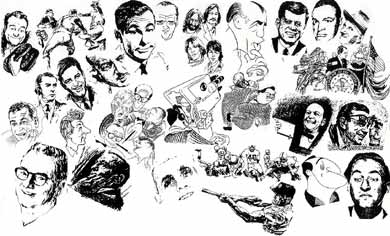
To search for a broadcast, please e nter a
Show Title, Personality, Airdate, Archive ID, Keyword or Phrase into the Search textboxes at the top of the page:
PRESERVING & ARCHIVING THE SOUND OF
LOST & UNOBTAINABLE ORIGINAL TV
(1946 - 1982)
"Preserving & disseminating important TV Audio
Air Checks, the video considered otherwise lost."
-Library of Congress
Vintage Television Audio Broadcasts
22,000 Titles - 20,000 Hours
Home | About us | Order Inquiry | TV Categories | Personality Index | Title Index
Archival Television Audio, Inc.
www.atvaudio.com
209 Sea Cliff Avenue
Sea Cliff, New York 11579
Attention: Phil Gries
|
Founder & Owner Phil Gries Director of Photography www.philgries.com |
"Any Inquiries"
Phone/Fax: (516) 656-5677
Email Us: gries@atvaudio.com
© 2002-2024 Collector's Choice Archival Television Audio, Inc.
All Rights Reserved.

Unique Visitors:
Visitor Counter
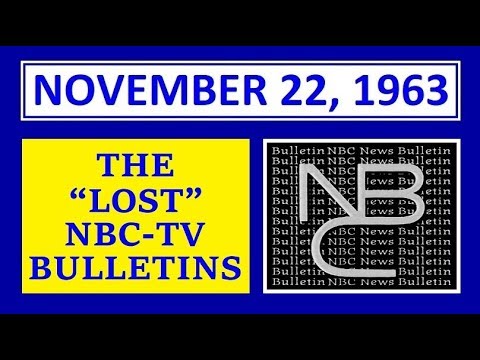
UNIQUE in the WORLD audio air check recordings by 20-year-old Phil Gries, archiving the first, second bulletins & initial NBC TV broadcast coverage of President John F. Kennedy's assassination. Not recorded by NBC or any other resource in the country.
- A&E TV SPECIAL - host Edwin Newman (11-22-1988) introduction - 25th Anniversary of JFK Assassination.
- NBC TV "Lost Don Pardo Bulletins" & Lost first 3:53 TV coverage (Phil Gries unique broadcast audio recording) unable to be video tape recorded or audio tape recorded by NBC.
- Phil Gries telephone interview with Don Pardo (5-14-1998).
- 10 minutes.
LIVE with PHIL GRIES
ARCHIVAL TELEVISION AUDIO - WEBINAR
Each Friday Evening from 7:30 - 8:30PM EST.
 RETRIEVABLE LOST MEMORIES
RETRIEVABLE LOST MEMORIESORDER
Vintage Television Audio Broadcasts
22,000 Titles
20,000 Hours
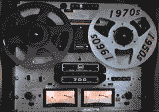
Testimonials
The Senior Moments Radio Broadcast show interviews Phil Gries about his Archival Television Audio archive and his restored documentary film, "Harlem School 1970"

Glen Cove Senior Center
January 23, 2018
 Phil Gries' recordings
Phil Gries' recordingsof vintage sounds
never grow old.

Hear Phil Gries on

Hear Phil Gries
and Joe Franklin
on Bloomberg Radio
(April 28, 2012)

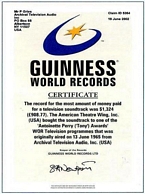
Home
Contact Us
ORDER INQUIRY
Hear Phil Gries on
National Public Radio
Archive Profile

ALL THINGS CONSIDERED
"Raising Ali"
(May 22, 2015)
Hear Phil Gries
on Sports Talk:
August 25, 2019
June 26, 2016
August 9, 2015




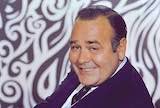
 Archive
ArchiveSearch Library
TV Categories
Personality Index
Title Index
ARSC Journal Article Publication: Lost TV Programs (1946-1972)

Hear Phil Gries presentations at ARSC (Association for Recorded Sound Collections) 2001, 2008, 2009, 2010, 2011, 2014.
Audio Samples

(Audio files may take 20 seconds or more to load)
1960's TV
Audio Player
103 Broadcast Samplers
AudioAndText™
Content
(Browser needs to
allow Flash content)
Content Collections
JFK Assassination
Coverage
NPR Walter Cronkite Essays
Civil Rights Movement (1956-1968)
Space Exploration (1956-1972)
Vietnam War
(1961-1975)
[854 Entries]
Company Information
About Us
Descriptions
Access
Fees
Archive
TIME-LINE
Accreditation
Master Materials
Research
Copyrights
Restricted Archive Titles
Catalogs
Related Materials
TV History
Lost Television
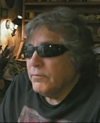
Jose Feliciano, at 70, listening to his FIRST TV variety show appearance (Al Hirt: FANFARE), telecast on July 17, 1965, when he was 19 years old.
TV Audio:
Rare & Valued
When TV Variety
Was King
This Anniversary Day
In Television History
ARSC/IASA London Conference: Why Collect?

News 12 Long Island
Live Television Profile:
Archival Television Audio, Inc
CAPTURED LIVE: CULTURES OF TELEVISION RECORDING AND STORAGE, 1945-1975

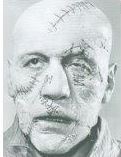
NBC MATINEE THEATER
FRANKENSTEIN
NBC TV - Feb. 5, 1957
8:23 min. excerpt
Phil Gries TV Audio Archive
Profile Segment
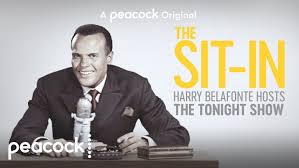
Harry Belafonte Hosts
The Tonight Show
5:21 min. excerpt
Password: Phil
(Case Sensitive)